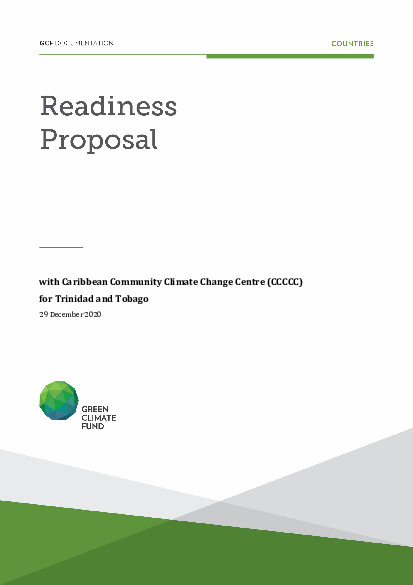Addressing pre-accreditation gaps for the Environmental Management Authority of Trinidad & Tobago

Addressing pre-accreditation gaps for the Environmental Management Authority of Trinidad & Tobago
The Government of the Republic of Trinidad and Tobago (GORTT) presently accesses the Green Climate Fund (GCF) via International and Regional Access Entities; however, by establishing a national Direct Access Entity (DAE) the country will be able to exercise ownership of climate change funding and better integrate these funds with its national climate change action plan. The Environmental Management Authority (EMA) has commenced the process of becoming a national Direct Access Entity (DAE) for Trinidad and Tobago. Through previous GCF Readiness Support, the EMA has taken stock of its existing capacity to become accredited and the critical gaps that must be filled. Specifically, the EMA recorded low capacity in the areas of Environmental and Social Safeguards (ESS), Gender, Basic Fiduciary standards, and Specialized Fiduciary standards (Project Management). Closing these accreditation gaps in a timely manner and in-keeping with the standards of the GCF requires an external intervention.
This Readiness support request is intended to assist with providing this external support and strengthening the institutional capacity of the EMA to facilitate engagement with the GCF as Trinidad and Tobago’s DAE. The overarching goal of this request is to fully align the operational modalities of the EMA with the GCF accreditation requirements so that an official accreditation request can be made by 2022. The outcomes of this proposed readiness programme are:
- A GCF compliant Project Management System (inclusive of an M&E system) enhanced and institutionalized.
- A GCF compliant ESS policy and system enhanced and institutionalized.
- A GCF compliant Gender Policy and Action Plan for the EMA enhanced and institutionalized.
- A suite of policies that satisfy the GCF’s fiduciary management requirements.
The main beneficiary of this project will be the EMA, who will have their organizational capacity strengthened through this readiness support. Secondary beneficiaries will include the stakeholders in the public, private and non- governmental sectors who will benefit from the newly established policies and systems. Assuming the successful accreditation of the EMA as a result of these new systems, the GORTT and other national stakeholders will also benefit by being able to access the GCF.